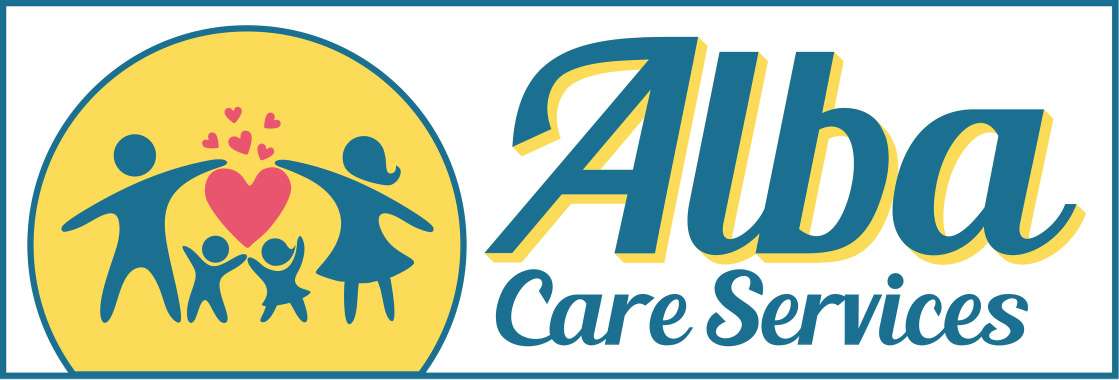Every state has distinct legislation concerning adoptive parents and the adoption process. If you’re considering adopting a child in California, the subsequent guidelines will provide clarity on the legal procedures and qualifications in your state, empowering you with the knowledge you need to navigate the fascinating journey of becoming a prospective adoptive parent and eventually adoption.
Types of Adoption
In California, there are several types of adoption possibilities that prospective adoptive parents can explore. These include Stepparent Adoption, where a step-parent takes legal responsibility for their spouse’s child, and Foster Care Adoption, a process involving the adoption of children who are in the foster care system due to various reasons.
Another type is Domestic Infant Adoption, which pertains to the adoption of a newborn or infant within the United States. International Adoption, on the other hand, involves adopting a child from a country other than the United States.
Lastly, it’s essential to understand the differences between Open vs. Closed Adoptions. Open adoptions allow for some form of communication or contact between the adoptive family and the birth family. In contrast, closed adoptions involve no contact or exchange of information between the adoptive and birth families.
Each adoption type comes with its own unique set of procedures, benefits, and challenges, and understanding these is a vital step in your adoption journey.
The Adoption Process in California
In California, the adoption process involves various steps that must be completed before a child can be legally adopted.
Step-parent Adoption
The first component of Stepparent Adoption is the Consent Stage. This involves the biological parent (not married to the step-parent) providing their consent for the adoption. The consent is not required if the biological parent’s rights have been legally terminated due to reasons like abandonment or neglect.
In the Petition Stage, the step-parent files a petition for adoption in the county Superior Court. Alongside the petition, the step-parent also submits the child’s birth certificate, marriage license, and if applicable, a consent form from the biological parent or proof of their rights to termination.
The Investigation Stage follows, wherein a court-appointed investigator conducts an evaluation of the step-parent’s home environment. This process is crucial as it determines the suitability of the step-parent for child adoption based on factors like emotional stability, financial capability, and overall living conditions.
In the Hearing Stage, if the investigator’s report is favorable, a court hearing will be scheduled. During the hearing, the judge reviews the case and makes a final decision on the adoption.
The Post Adoption Stage is executed. If the judge approves the adoption, a new birth certificate is issued for the child, with the step-parent’s name as the parent.
Remember, the Step-parent Adoption process requires meticulous attention to every step and its legal implications. Always consult with an attorney or an adoption professional to ensure the correct procedures are followed.
Foster Care Adoption
Foster Care Adoption in California involves a series of steps designed to ensure the welfare and stability of the child. The process begins with the Orientation Stage, where prospective adoptive parents attend an orientation session to gain comprehensive knowledge about the foster care system and the adoption process.
Next is the Training Stage, where individuals undergo mandatory pre-service training. This training educates the prospective parents about potential challenges, such as dealing with a child’s trauma and loss, and equips them with the necessary skills to cope.
The Application Stage follows, where one fills out and submits an application to become a certified adoptive parent. The application includes detailed information about the applicant’s background, lifestyle, home environment, and reasons for adopting.
During the Home Study Stage, a social worker conducts an in-depth review of the applicant’s home, financial stability, relationships, and readiness to adopt. This evaluation assesses whether the home environment is suitable for a child.
In the Placement Stage, a child is matched and placed with the adoptive parents based on compatibility, needs of the child, and the parents’ skills. The child then begins living with the family, during which time the family is closely monitored by the placement agency.
The final Legalization Stage involves the formalization of the adoption through the court. A judge reviews the case, considering the child’s adjustment and the family’s capability, before legally approving the adoption.
The Post-Adoption Stage includes support services to help the family navigate their new dynamics. These services include counseling, education, and assistance with any potential challenges.
Foster Care Adoption is a transformative journey, involving emotional intelligence, patience, and resilience. It’s essential to utilize available resources and professional assistance to ensure a smooth transition for both the child and the family.
Domestic Infant Adoption
Domestic Infant Adoption in California is a process that provides prospective parents with an opportunity to adopt a newborn or infant within the United States. It kickstarts with the Decision Stage, where individuals or couples decide to adopt and begin researching potential adoption agencies.
The subsequent Agency Selection Stage involves screening various agencies and evaluating their reputation, services, cost, and support systems. An essential part of this step is ensuring that the prospective agency is licensed and accredited, thus providing reliable and professional adoption services.
The third stage, known as the Home Study Stage, involves a comprehensive investigation conducted by a social worker to evaluate the prospective adoptive parents’ home, relationships, financial stability, and overall readiness for adoption. This stage is crucial in ascertaining the suitability of the home environment for a child.
Next comes the Matching Stage. This involves the careful matching of the prospective parents with a birth mother, taking into consideration factors like lifestyle, family values, and preferences. The matching process often utilizes algorithms and NLP (Natural Language Processing) techniques to ensure an optimal match based on the data provided by both parties.
Once a match has been made, the Pre-Placement Stage begins. This period involves communication between the adoptive parents and the birth mother, facilitated by the adoption agency. The goal is to build a relationship and prepare for the arrival of the baby.
With the baby’s birth, the Placement Stage is initiated. The child is placed with the adoptive family following the birth mother’s written consent for the adoption.
Finally, the Post-Placement Stage involves a series of post-placement visits by a social worker to ensure the child’s well-being and help the family adjust. Once this stage is satisfactorily completed, the adoption is formalized through court legalization.
Domestic Infant Adoption, like all adoption types, requires patience, resilience, and a commitment to providing a loving and nurturing home for the child. Through this process, families are not just built, but also fortified with love, understanding, and mutual respect.
International Adoption
International Adoption, or foreign adoption, in California, is an enriching process allowing a hopeful adoptive parent or parents to adopt a child from another country. This process starts with the crucial Decision Stage, where prospective parents make the conscious choice to adopt internationally and begin researching about potential adoption agencies and specific country regulations.
During the Agency Selection Stage, the families vet various international adoption agencies, ensuring to choose a Hague-accredited agency that abides by international adoption standards. They evaluate the agency’s credibility, services, support system and cost.
The Home Study Stage involves an exhaustive assessment conducted by a licensed social worker to evaluate various aspects of the prospective adoptive parents’ lives. The evaluation incorporates the use of Natural Language Processing (NLP) techniques to analyze interview transcripts and written statements for insights into the applicants’ suitability.
The Dossier Compilation Stage follows, where the prospective parents gather and submit necessary documents, including their home study report, to their chosen agency. This dossier, often transformed into a digital format, can be searched and analyzed using NLP, enhancing the process efficiency.
The Referral Stage involves the use of predictive analytics and NLP algorithms to match a child with the prospective parents. Factors taken into account include the child’s needs, the family’s preferences and the potential for a successful adoption.
In the Pre-Adoption Stage, the matched child’s information is shared with the prospective parents. They get to review medical records, photographs, and any additional information. During this stage, NLP can help in translating documents if the child is from a non-English speaking country.
The Travel Stage follows, in which one or both adopting parents travel to the child’s country to meet the child and complete the adoption process. This stage might require multiple visits, depending on the child’s native country’s regulations.
The final step is the Post-Placement Stage, where a social worker makes several visits over a period of time to ensure the child is adjusting well to their new home. This period also involves completing U.S. citizenship for the adopted child.
International adoption is a journey of love that transcends borders. It involves a combination of patience, resilience, understanding, technology, and commitment to provide a nurturing home to a child in need.
Open Adoptions
Open Adoption in California is a process that involves a significant level of communication and relationship-building between the prospective adoptive parents and the birth parents. This process begins with the Decision Stage, where individuals or couples choose to enter an open adoption and start researching suitable adoption agencies.
In the Agency Selection Stage, the prospective adoptive parents carefully evaluate various agencies, ensuring they choose one experienced in facilitating open adoptions and that the agency is licensed, reputable, and supportive.
The next step is the Home Study Stage, which involves a comprehensive assessment conducted by a social worker to evaluate the readiness of the adoptive parents for adoption. This includes their home environment, financial stability, and preparedness to embark on an open adoption journey.
The Matching Stage follows, where birth parents and prospective adoptive parents are matched based on mutual preferences, lifestyles, and values. The adoption agency plays an essential role in this matching process.
Once matched, the Communication Stage begins. In this stage, adoptive parents and birth parents start to build their relationship. They may communicate through letters, emails, phone calls, or even in-person meetings. This stage aims to establish a level of comfort and trust between the adoptive parents and the birth parents.
The Placement Stage is initiated after the child’s birth and the birth parents have given their consent for the adoption. The child is placed with the adoptive parents, but unlike traditional adoptions, open adoption allows the biological parents to remain part of the child’s life to an agreed extent.
Lastly, the Post-Placement Stage commences, where a social worker conducts several visits over a specified period to ensure the child’s welfare in their new home and the continued health of the relationship between all parties involved.
Open adoption is a unique journey that requires understanding, empathy, and respect from all parties involved. It’s a process that broadens the concept of family, acknowledging the role of biological parents while securing a nurturing environment for the child with their adoptive parents.
Closed Adoptions
Closed Adoption in California is a process where the adopting parents and the birth parent have little to no contact or identifying information about each other. This process begins at the Decision Stage when individuals or couples decide to adopt and start researching for a suitable adoption agency. During the Agency Selection Stage, the adopting parents evaluate various agencies, selecting one that is reputable, licensed, and can effectively facilitate a closed adoption.
The Home Study Stage follows, where a comprehensive assessment is conducted by a social worker to evaluate the readiness of the adoptive parents. This includes an examination of their home environment, financial stability, and preparedness for the adoption journey.
Next is the Matching Stage. Unlike open adoptions, in a closed adoption, the birth parent usually has little to no part in choosing the adoptive parents. The adoption agency typically makes the match based on the needs of the child and the ability of the adoptive parents to meet those needs.
The Placement Stage is initiated once the birth parent has given consent for the adoption after the child’s birth. In contrast to open adoptions, closed adoption does not allow the birth parent to remain part of the child’s life post-adoption.
Finally, the Post-Placement Stage is where a social worker conducts several visits over a specified period to ensure the child’s welfare in their new home.
Closed Adoption, while providing confidentiality and a sense of closure for all parties involved, also necessitates a high level of trust in the adoption agency’s decisions. The process respects the privacy of the birth parent while ensuring a secure and loving home for the child in the care of the adoptive parents.
What Rights Do Birth Parents Have?
In the State of California, birth parents hold significant legal rights in the context of agency adoptions, which are governed by the California Department of Social Services. Primarily, these rights involve the ability to make important decisions about their child. For instance, in an open adoption scenario, birth parents have the right to participate in the selection of the adoptive or foster parents.
However, these parental rights are not absolute. In cases of child abuse or neglect, the courts may intervene to protect the child’s best interests, possibly leading to the termination of parental rights. This decision is never taken lightly and only implemented when the child’s safety and well-being are at risk.
Moreover, birth parents have the right to maintain contact with their child and other biological family members in open adoptions, as agreed upon with the adoptive parents. However, in a closed adoption, the information is kept confidential, and there is typically little to no contact post-adoption.
It’s noteworthy that in situations where the child is placed in foster care, the Department of Social Services will typically work toward reuniting the child with their birth parent or parents if it is in the child’s best interest. This is reflective of the law that perceives the biological family as the optimal environment for a child, as long as it is safe and nurturing. Birth parents also have the right to be represented by legal counsel during all stages of the adoption process to ensure their rights are fully protected.
In conclusion, while birth parents have significant rights in adoption scenarios in California, the paramount concern is always the child’s best interest. The intricacies of these legal rights are best navigated with the assistance of a reputable adoption agency and legal counsel.
As An Adoptive Parent, Will I Recieve Any Help?
For prospective adoptive parents, it’s important to know that financial assistance is available to help mitigate some of the costs associated with the adoption process. Through local county adoption agencies, adoptive families can access resources to help cover various expenses, from legal fees and court costs to travel and other adoption-related costs. This financial assistance comes in different forms and is designed to help ensure that economic constraints do not prevent a loving home for any adoptive child.
One of the key financial benefits available to adoptive families is the Adoption Assistance Program (AAP). This program reimburses families for a portion of the expenses incurred during the adoption process, offering a lifeline for those who may struggle with the costs of adoption.
Adoptive parents of foster children might also be eligible for a monthly adoption subsidy to assist with the child’s daily needs, providing financial stability for the new family.
Further, the federal government provides a Federal Adoption Tax Credit, which allows adoptive parents to receive a federal tax credit for certain adoption expenses, making it financially more manageable to legally adopt a child.
Financial assistance in adoption not only alleviates some of the monetary burdens but also ensures that prospective adoptive parents can focus on the most critical aspect – providing a nurturing and loving home for their new child.
The entire process, while complex, is aimed at supporting families and making adoption feasible for more prospective adoptive parents. Guidance from a local county adoption agency can further help navigate these financial benefits, making the adoption journey a more manageable and rewarding experience.
Are You A Prospective Adoptive Parent?
At Alba Care Services, we understand the complexities and emotions involved in the adoption and fostering process. We’re here to provide comprehensive support to potential adoptive parents, guiding you every step of the way through agency adoption. As a trusted partner, our dedicated team of professionals is committed to making the journey as smooth and fulfilling as possible.
Being a foster parent or deciding to adopt children is one of the most rewarding decisions you’ll ever make. You’re not only providing a loving home to a child in need but also expanding your family with endless moments of joy, growth, and togetherness. Alba Care Services is here to ensure that this profound experience is supported by our expertise, resources, and compassion.
We believe that every child deserves a loving and safe home, and we’re dedicated to making this a reality for more children every day. So if you’re considering taking this life-changing step, reach out to Alba Care Services. We’re here to turn your dreams of parenthood into a beautiful reality, enriching your life while changing the world, one child at a time.
Frequently Asked Questions
What are some adoption-related expenses that Alba Care Services can help cover?
Alba Care Services can assist with various adoption-related expenses. This includes legal fees, court costs, and any travel related to the adoption process. Additionally, they can help prospective adoptive parents access resources like the Adoption Assistance Program (AAP) and the Federal Adoption Tax Credit.
Is it necessary to have a family law attorney during the adoption process?
It is highly recommended. A family law attorney can guide you through the legal intricacies of adoption, helping to ensure the process goes smoothly and your rights are fully protected. Alba Care Services can help connect you with experienced legal counsel.
Does Alba Care Services facilitate older child adoption?
Absolutely! Alba Care Services is committed to finding loving, safe homes for children of all ages, including older children. They understand that older child adoption comes with unique challenges and rewards and will provide the necessary support and resources.
How can I become a foster parent with Alba Care Services?
If you’re interested in becoming a foster parent, Alba Care Services is here to guide you through the process. They provide comprehensive support and resources to ensure you’re well-prepared to provide a nurturing home for a foster child.
What should I expect in the Adoption Planning Questionnaire?
The Adoption Planning Questionnaire is a tool used to gather information about your preferences and expectations for your adoption journey. It covers various topics, including your thoughts on open versus closed adoption, your comfort level with different backgrounds and medical histories, and your preferences for age and gender, among other things.
What makes Alba Care Services a reliable adoption service provider?
Alba Care Services is a trusted partner in the adoption journey due to its comprehensive support, professional team, and dedication to ensuring every child has a loving, safe home. They guide prospective adoptive parents every step of the way and provide all the necessary resources, making the adoption process smoother and more rewarding.
Can Alba Care Services help with the financial aspects of adoption?
Yes, Alba Care Services is well-versed in the various financial benefits available to adoptive parents. They can guide you toward resources to offset adoption-related expenses, including the Adoption Assistance Program (AAP) and the Federal Adoption Tax Credit. Their goal is to make adoption feasible for more families, irrespective of economic constraints.






